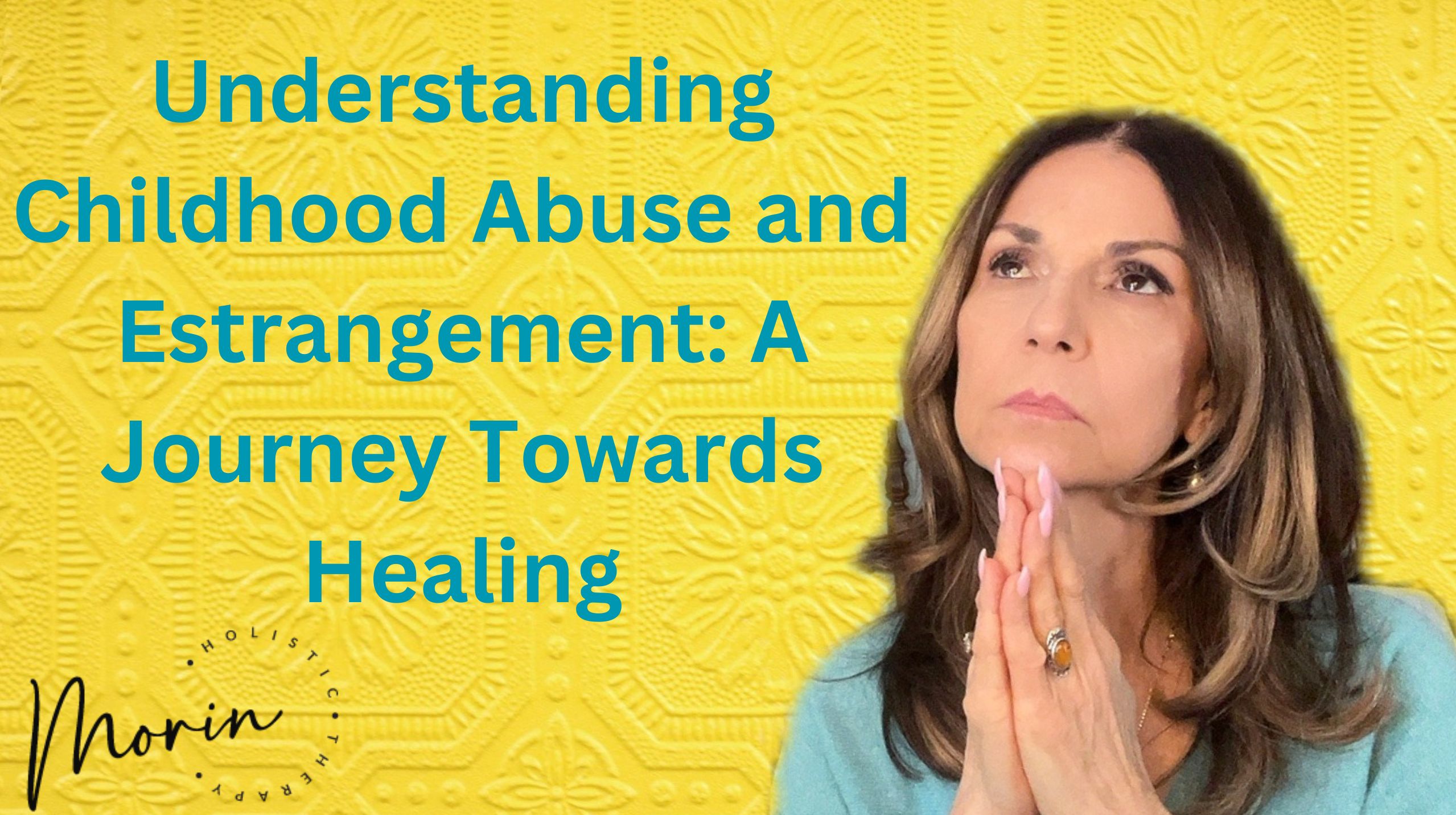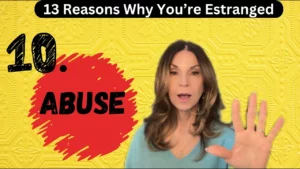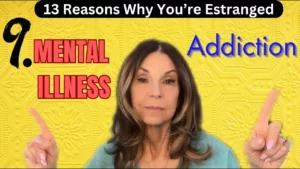In this exploration of “childhood abuse is why i estranged” we delve into the complex realm of family estrangement, mainly focusing on how childhood abuse can lead to adult children distancing themselves from parental relationships. It’s an uncomfortable yet crucial conversation that demands our attention.
Understanding Estrangement:
Estrangement isn’t a mere decision but a personal journey shaped by profound experiences. It’s about establishing emotional boundaries for one’s well-being. But what exactly is estrangement? It’s the deliberate distancing from a family member, often due to emotional trauma or abuse.
Childhood Abuse:
When you are saying “Childhood abuse is why i estranged”, childhood abuse, in its myriad forms, casts a long and dark shadow over the lives of its survivors. It is not merely a singular event but a series of traumas that echo throughout one’s existence, leaving scars that transcend time. Physical abuse, emotional torment, verbal assaults, and sexual exploitation are all facets of this harrowing experience.
Physical abuse manifests in bruises, broken bones, and scars, but its impact goes far beyond the visible wounds. It instills fear, erodes trust, and distorts the perception of safety within the confines of what should be a nurturing environment. The pain of each blow reverberates through the years, a constant reminder of the betrayal of innocence.
Emotional abuse, perhaps less visible but equally insidious, inflicts wounds that cut deep into the psyche. The relentless onslaught of insults, denigrations, and manipulations chip away at the very core of one’s being. The words spoken in anger or malice become internalized, shaping self-perception and distorting the lens through which the world is viewed.
Verbal abuse, a weapon wielded with devastating precision, leaves scars that linger long after the echoes of harsh words have faded—the relentless barrage of criticism, ridicule, and humiliation chips away at self-esteem and self-worth. The wounds inflicted by verbal abuse may not bleed, but they pierce the soul with an all-consuming pain.
Sexual abuse, perhaps the most egregious betrayal of trust, shatters innocence and leaves behind a legacy of shame and trauma. It is the violation of boundaries, the exploitation of vulnerability, and the desecration of the sacred bond between caregiver and child. The scars left by sexual abuse run deep, leaving survivors grappling with feelings of guilt, worthlessness, and profound betrayal.
According to the Diagnostic and Statistical Manual of Mental Disorders (DSM-5), childhood abuse encompasses a range of traumatic experiences that can have significant and long-lasting effects on an individual’s mental health. Psychological abuse, as defined by the DSM-5, includes verbal or symbolic acts that result in substantial psychological harm. This can include yelling, name-calling, blaming, gaslighting, manipulating, and normalizing abuse due to the victim’s status as a child.
Often overlooked but no less damaging, neglect is the absence of the love, care, and attention that every child deserves. It is the failure to provide for basic needs, the indifference to emotional well-being, and the abandonment of parental responsibility. The wounds of neglect may not be visible, but they leave an indelible mark on the soul, breeding feelings of abandonment, inadequacy, and profound loneliness.
The effects of childhood abuse are far-reaching and enduring, shaping the trajectory of one’s life in ways that are both profound and pervasive. It is not merely a chapter in one’s past but a defining aspect of one’s identity, coloring every relationship, every decision, and every interaction with the world. The scars left by childhood abuse may fade with time, but their imprint on the soul is indelible, a constant reminder of the pain endured and the resilience forged in the crucible of trauma.
Effects of Child Abuse:
The aftermath of childhood abuse extends far beyond formative years. Emotional wounds fester into anxiety, depression, or Complex Post-Traumatic Stress Disorder (C-PTSD), significantly when the abuse is prolonged or repetitive. This trauma disrupts the ability to form healthy connections, even within the family.
Using Estrangement as a Coping Mechanism: Reclaiming Control and Establishing Boundaries
Estrangement, often viewed through a lens of societal stigma, can be a powerful coping mechanism for individuals who have endured childhood abuse. It represents a radical yet necessary step towards reclaiming agency over one’s life and breaking free from the suffocating grip of abuse’s cyclical nature.
For survivors of childhood abuse, estrangement isn’t merely a decision; it’s a lifeline. It’s a deliberate act of self-preservation, a refusal to remain shackled to toxic relationships that threaten to engulf them in a never-ending cycle of pain and trauma. By distancing themselves from their abusers, survivors can create a space where they can breathe, heal, and begin the arduous journey towards reclaiming their sense of self.
Estrangement is, in essence, an act of empowerment—a bold declaration of autonomy in the face of adversity. It’s about setting boundaries and refusing to tolerate behavior that undermines one’s dignity and well-being. By drawing a line in the sand, survivors assert their right to be treated with respect and dignity, refusing to allow their abusers to continue inflicting harm upon them.
Moreover, estrangement offers survivors an opportunity for personal growth and self-discovery. It’s a chance to rediscover who they are outside the shadow of their abusers, to nurture their passions, and to pursue their dreams without fear of judgment or reprisal. Freed from the constraints of toxic relationships, survivors can explore new avenues of self-expression, forge meaningful connections with others, and chart a course toward a brighter, more fulfilling future.
However, it’s essential to acknowledge that estrangement is not a decision taken lightly. It’s a painful and often fraught process, fraught with feelings of guilt, grief, and uncertainty. Survivors may grapple with conflicting emotions, torn between their desire for freedom and their longing for reconciliation with their abusers. The decision to estrange oneself from family members is not made lightly; it is a last resort, born out of necessity and driven by a desperate need for self-preservation.
Yet, despite the challenges it entails, estrangement can also be a source of immense liberation and empowerment. It’s a radical act of self-love, a refusal to allow past traumas to dictate one’s present and future. By taking control of their narrative, survivors of childhood abuse reclaim their power and agency, forging a path toward healing, wholeness, and self-empowerment.
Overcoming the Silence of Abuse:
Overcoming the silence of abuse is a journey fraught with obstacles, yet it is a journey essential for healing and liberation. Society’s pervasive norms often dictate that family matters should remain private, perpetuating a culture of secrecy and shame that further isolates survivors. The fear of judgment, rejection, or disbelief can weigh heavily on those contemplating breaking the silence. However, within the deafening silence lies an opportunity for empowerment. Estrangement emerges as a courageous act, not only of self-preservation but also of defiance against the suffocating grip of societal expectations. By speaking out and refusing to accept the status quo, survivors reclaim their voices and assert their right to prioritize their well-being. In breaking the silence, they pave the way for others to do the same, fostering a culture of openness, understanding, and empathy essential for healing and collective liberation.
Guilt and Social Judgment:
Guilt and social judgment cast a long shadow over the decision to estrange oneself from abusive family members. Society’s emphasis on the sanctity of familial ties often compounds these feelings, leading survivors to question whether they are betraying their loved ones or abandoning their responsibilities. However, it’s crucial to recognize that prioritizing well-being is not an act of betrayal; it’s an act of self-love and self-preservation. Survivors have endured unimaginable pain and trauma, and their decision to distance themselves from toxic relationships is a testament to their strength and resilience. By prioritizing their own mental and emotional health, survivors set an example for others and pave the way for a future free from the chains of abuse and oppression.
Healing from childhood abuse and estrangement is a multifaceted journey. It involves professional therapy, support groups, and self-care practices. It’s about acknowledging pain, allowing oneself to grieve, and rebuilding a sense of self.
Conclusion: Resilience:
Estrangement isn’t an easy path, but it’s one of resilience. It’s a profound decision for personal healing, a stand against the cycle of abuse, and a commitment to well-being. Strength lies in acknowledging pain, seeking support, and forging healing.
Recommendations for Healing:
For those navigating their unique journey, prioritize self-care and nurture resilience. Recognize the strength to heal and seek encouragement from support networks. If you’re in imminent danger, please seek help from national hotlines or trusted adults.
Closing Thoughts:
Understanding the intersection of childhood abuse and estrangement sheds light on the complexities of family dynamics and personal healing. It’s a journey marked by courage, resilience, and the unwavering pursuit of well-being.









